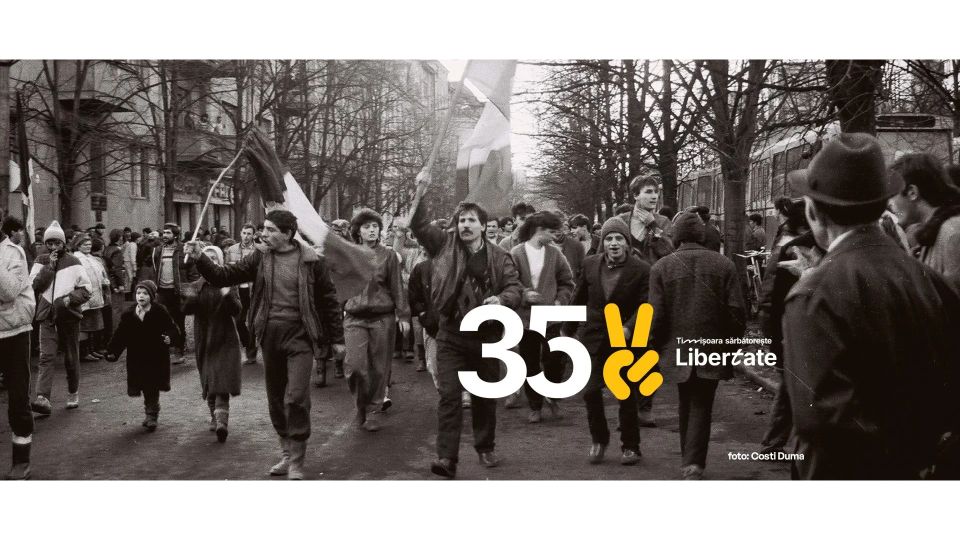The History Show
Music and counter-culture in communist Romania

Steliu Lambru, 09.12.2019, 14:24
The communist
regime in Romania imposed harsh regulations in all the social spheres and
culture was no exception to the rule. These regulations, called canons at that
time, were being established by the communist activists in charge of culture
and censorship. These canons were targeting the high culture but the cultural
forms coming from under the printing press were being marginalized and mostly
materialized themselves into what we know as counterculture.
Besides
classical and opera music, counterculture chiefly manifested itself in rock,
jazz, blues and folk music. Pop music proved to be the most conformist back in
the communist time, strictly keeping with the canon, but artists who tried to
embrace styles from outside of the canon were quite few due to the difficult
access to the sources of inspiration. For this reason, attempts to convey
through music messages not complying with the official cultural directions were
quite scarce back then.
Nevertheless,
the counterculture stemmed out of the people’s need for freedom in the creation
process. Its inspiration sources, such as beat music, rock, blues and jazz
produced in the West were being smuggled in Romania together with other Western
products that were really hard to find on the communist market such as
garments, cosmetics and jewels. Besides all these goods, foreign students used
to smuggle in Romania vinyl records with music, which wasn’t produced in this
country.
Another source
of inspiration for Romania’s musical counterculture were the jazz and rock
music programmes made by Willis Conover and Cornel Chiriac and aired by Voice
of America and Radio Free Europe respectively.
Even more
important than music was poetry and the verses proposed by the Romanian
counterculture of that time had irony as their main characteristic in a bid to
stimulate ideas and critical thinking. The severe food shortage and the
extremely gloomy atmosphere of the 80s served as a major source of inspiration
for the nonconformist poets of the time. Although the communist regime
eventually made a couple of concessions allowing the jazz festivals of Sibiu
and Costinesti, the grim reality was visible everywhere. Historian Sorin Antohi
is recalling that gloomy period in Romania’s history.
Sorin Antohi:I remember an episode
from the severe food shortage that was plaguing Romania back in the communist
time. I had just come back from the Jazz festival in Sibiu back in 1980 with a
couple of friends. We were bound for Iasi in northeastern Romania and we had to
change trains in Ploiesti in the south. While crossing the city in our attempt
to move to another train station we saw people close to one of the largest
communist supermarkets pushing and shoving each other in an attempt to purchase
butter. We saw small white packages flying in the air and didn’t know what were
at first. Then we realized that the communists used to cut 200 gr. packages of
butter in two so that they may sell to as many customers as possible. So the
people we saw were actually fiercely fighting over 100 grams of butter.
In communist
Romania, censorship imposed certain forms of musical expression, which prompted
some of the artists to try to avoid them. One of those artists was architect
and singer-songwriter Alexandru Andries, a figurehead of musical counterculture
in the 1970s and 1980s. Two of his songs were resounding hits, namely What a
beautiful city and On the TV newsreel.
In the first
song, Andries hinted at the existence of plants and factories which could be
seen everywhere, simply stepping out of the line as against urban trends and
principles. Concurrently, the lyrics of the song included barbed comments
targeting the privileged ones, who lived in neighborhoods that were very well
taken care of. The second song, On the TV newsreel, was not a subversive song,
but a pastiche. The song became subversive later on, in the 1980s, when the
food crisis hit Romania’s population. In a recent conference, Andries recalled
how he developed a passion for the music that challenged the mainstream,
officially accepted one.
Alexandru
Andries: I must admit that on one hand,
it was sheer fat luck as my mother’s sister, my genuine aunt, left for the USA
in 1966, by marriage. And that’s how’s I had access to books and LPs that were
beyond reach, here. I remember that the Smithsonian Museum edited some sort of
vinyl edition of American traditional music, encyclopedia, there were
recordings from 1900 to this day, with the music of African -Americans who sang
blues, with the music of the Redskins. I wanted that encyclopedia for myself quite all right, I didn’t realize
that in fact, it was a box with vinyl LPs that were very heavy. Little wonder
then that the authorities summoned me, to tell them what was that about that
big box I received from the USA.
English was a
key component of musical counterculture. Andries recalled that when they had
music classes, the teacher used to bring a turntable with her quite often, and
played the music of Rolling Stones. However, for Andries, the fact that English
was the language of the songs caused a lot of dissatisfaction and that had a
strong bearing on his artist’s progress.
Alexandru
Andries: As far as I’m concerned,
the most important thing was that I could not listen in Romanian, what I was
listening to in other languages. And I got peeved because of that. Of course I
didn’t have any interest in Romanian entertainment music whatsoever, with all
its dull lyrics and with all those people who made a living writing such songs,
songwriters and singers who did not have problems with the censorship. There
were only two versions for that: there were either lyrics that did not convey
anything special, or there were poems written by classical Romania poets, whose
work had been published. And that was the main reason why I said to myself why
shouldn’t I write some songs the way I would like to hear them. I never
imagined I would sing them live, in front of an audience.
The products of
musical counterculture in the 1980s have also had their own public after 1989.
And that, not for the relevance they may have today, but for the value they had
back then.






























